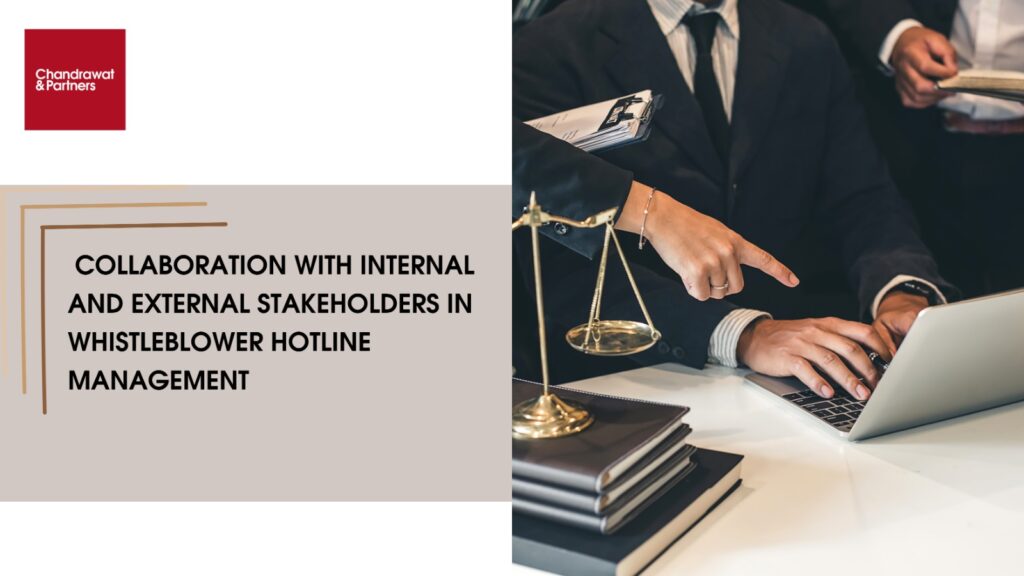The use of whistleblower hotlines has become a necessity for organizations committed to upholding transparency, ethical conduct, and accountability. These mechanisms empower employees and stakeholders to report misconduct, unlawful activities, and concerns within the organization, free from the fear of retaliation. However, the successful implementation and administration of a whistleblower hotline require seamless collaboration with both internal and external stakeholders, including legal teams, human resources departments, and regulatory bodies.
LEGAL TEAMS: EXPERTISE AND COMPLIANCE
Collaborating with legal teams is indispensable for the effective management of whistleblower hotlines. Legal professionals possess the expertise required to navigate the intricate legal landscape surrounding whistleblowing. They provide crucial guidance to ensure that the processes of the whistleblower hotline align with applicable laws and regulations. This includes assisting in the development of robust reporting mechanisms, safeguarding the identity and confidentiality of whistleblowers, and conducting comprehensive investigations. Moreover, working closely with legal teams enables organizations to minimize their exposure to legal risks, safeguard their reputations, and instill trust in the reporting process’s overall legality.
Legal teams also have a significant impact on the continuous analysis and improvement of policies and processes associated with the whistleblower hotline. They offer valuable insights on topics such as non-retaliation measures, anonymity protection, evidence preservation, and non-retaliation policies. Establishing a solid legal foundation for whistleblower hotline management is paramount, and organizations can achieve this through collaborative efforts with legal experts.
HUMAN RESOURCE DEPARTMENT: EMPLOYEE SUPPORT AND WELL-BEING
Effective engagement with the Human Resource (HR) department is essential for building employee trust and ensuring their well-being throughout the whistleblower reporting process. HR professionals play a vital role in fostering a culture of encouragement and ethical conduct within the organization. They provide guidance on the development of training programs aimed at educating employees about the importance of reporting concerns while assuring them that their health and safety are top priorities for the company.
HR is also responsible for managing employee relations, including the investigation of misconduct allegations and the resolution of disputes. Collaborating closely with HR specialists ensures that complaints are promptly, fairly, and discreetly addressed. Furthermore, HR teams assist in monitoring and assessing the whistleblower hotline’s impact on overall employee morale, making necessary improvements to enhance the process continually.
REGULATORY BODIES: COMPLIANCE AND OVERSIGHT
Regulatory bodies play a pivotal role in whistleblower hotline management as they oversee operations, offer guidance, and ensure adherence to all relevant rules and regulations. These organizations establish industry norms, formulate policies, and uphold ethical standards. Collaborating with regulatory bodies offers numerous advantages, ensuring that whistleblower hotlines function efficiently and remain in compliance with the law.
Regulatory bodies provide specific guidelines and requirements for establishing and maintaining whistleblower hotlines. These guidelines may encompass recommendations on reporting mechanisms, confidentiality safeguards, non-retaliation measures, and record-keeping procedures. By working in partnership with regulatory bodies, organizations can ensure that their whistleblower hotlines are not only compliant but also exceed these standards. Compliance with regulatory guidelines enhances the credibility and effectiveness of the hotline, instilling confidence in employees and stakeholders that their concerns will be handled appropriately.
Collaboration with regulatory bodies allows organizations to tap into their expertise and best practices. Regulatory bodies often possess extensive knowledge and experience in handling whistleblowing cases and addressing organizational misconduct. They can offer valuable insights into effective investigation procedures, evidence preservation, and appropriate disciplinary actions. Leveraging the recommendations and expertise of regulatory bodies enables organizations to enhance their whistleblower hotline management systems, strengthening their ability to address and prevent misconduct effectively.
INTERNAL STAKEHOLDERS
Efficient whistleblower hotline management necessitates collaboration with internal stakeholders within the organization, including management, internal auditors, and ethics and compliance teams. These internal constituents provide insights into potential areas of risk and vulnerability, enabling the prompt identification and resolution of issues.
Management plays a pivotal role in ensuring the success of the whistleblower hotline. Leaders are responsible for cultivating a culture that encourages reporting and protects whistleblowers from retaliation. Collaborating with management teams helps establish clear reporting channels, allocate necessary resources, and integrate whistleblower concerns into a broader risk management framework.
Involving internal auditors and ethics and compliance teams ensures that reported incidents are thoroughly investigated, and preventive measures are implemented. Their expertise in risk assessment and mitigation aids in identifying systemic problems and preventing future misconduct. Collaboration allows organizations to effectively leverage their internal knowledge and resources.
For more information or queries, please email us at
enquiries@chandrawatpartners.com




